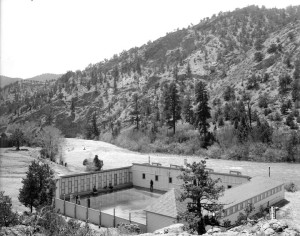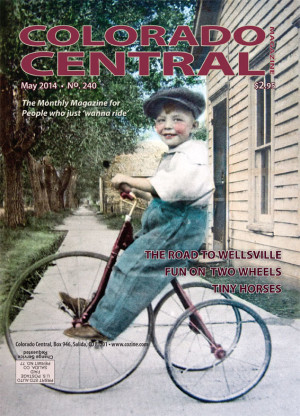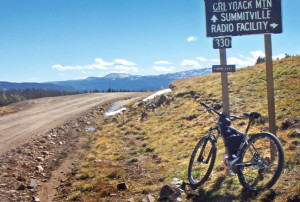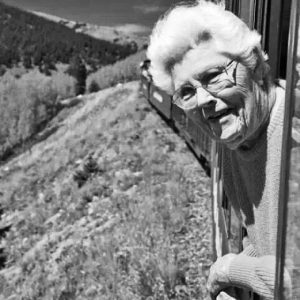By Hal Walter
“All writers are vain, selfish, and lazy, and at the very bottom of their motives there lies a mystery. Writing a book is a horrible, exhausting struggle, like a long bout of some painful illness. One would never undertake such a thing if one were not driven on by some demon whom one can neither resist nor understand …” – George Orwell
Every good story has a beginning, a middle and an end. Typically, when I sit down to write something I have the middle in my mind. It’s the beginning and the ending that I often have trouble with.
Not so with a project I’ve been working on for the past nine months. It’s a book, with the working title of “Full Tilt Boogie,” and it’s essentially a memoir about about a guy – me – trying to make sense of the middle part of his life, raising an autistic son and struggling with dwindling career opportunities while trying to win an improbable 7th World Championship pack-burro race.
The idea for the book came from my friend Curtis Imrie, who left a copy of Tom Groneberg’s, One Good Horse, for me alongside Highway 96 with the inscription “For Hal – This is ‘your’ book. You have one in you … and better.”
I thought about those words for some time. Groneberg’s book is about a writer/ranchhand in Montana who wants to train one last good horse while coming to terms with his son’s Down Syndrome.
To write a book using pack-burro racing and a quest for a World Championship around the story of raising an autistic child seemed interesting and had possible merit – autism is a hot topic these days. I started working on the book, test-flying parts of it as columns here in Colorado Central, and also using an assignment for Modern Farmer magazine as a good excuse to write some of the understory.
Before I knew it, I had a beginning and ending all roughed out. All I had to do was fill in the middle, and therein was the problem. I don’t write anything long-form. I am an essayist. It’s nearly impossible for me to see any larger picture because I tend to see everything I write as a picture. Thus, my book became an exercise of writing vignettes that intertwined to tell a larger story. Oddly, this was also how Groneberg had told his story.
For some time it seemed the concept just percolated around the beginning and ending, and then I framed the backstory. I started looking through my notes and found a wealth of material that began as emails to friends and family. The book began to take shape.
The process was much more painful than I could have imagined, as I considered everything I’d been through and learned in the last 10 years, from the first months of accepting my role as a father …
… At one point I remember lying on the floor of what was once my office and looking around at the newly painted room, the stuffed animals and books. The crib. I was 44 years old and I began to tremble out of fear and mourning for the independent life that I had known and would soon be leaving behind, but even more so for my feeling of shameful selfishness that somehow would not leave.
Then some remembrances of my own difficult early childhood …
… My biological father arriving home drunk in the morning, with the family car wrecked and spewing steam from the radiator. Suspicious wounds from bar fights. He once handed me a loaded revolver and I luckily escaped with my hand intact though burned black by a gunpowder blast.
Between the seriousness, I began to weave my own background of how I came to live here in Custer County, and how I found myself to be scrabbling for a living here, and through it all is a story of quest and triumph, my training of the unpredictable Full Tilt Boogie for the World Championship race …
… She could also cut left in front of me at a dead run out in the open and leave me flailing at the end of the rope like a 160-pound rag doll. From a big trot she could spook at a dark spot on the road, stop in her tracks and leap backwards with all the authority of an entire NFL defensive line.
Realizing that Harrison was not neurotypical …
… The realization that something is not quite right with your child sinks in very slowly, even more so for fathers. At first there are subtle signs. Sensory issues. Screaming fits. Sleep disturbances. Fascinations with things that spin, patterns, and lining up toys. The failure to meet developmental milestones. Walking delays. Language delays. Echolalia – repeating words or sentences like a parrot. “Darting” – running away with no referencing or regard for surroundings. Then one day you suddenly notice the stark differences between him and other kids his age.
And recognizing Harrison’s inner genius …
… My child is not an honor student. But Harrison is a beautiful wonder of brilliance, talent and single-minded focus.
And the trials and tribulations that followed, some of them intense and some of them funny …
… This continued as we waited in the checkout line and I noticed that the checker had apparently been either the victim of a home hair-color project gone awry or had simply done her hair in the style of Bozo as an attention-getter. Harrison continued to chatter loudly as we finally arrived at the register. He looked up at the orange-haired checker and was quiet for just a second before blurting out loudly enough for everyone in the checkout lines to hear: “IS SHE THE CLOW-EN?”
While this scene was humorous, the recounting of some other experiences was not unlike taking a ball peen hammer to my own brain …
… A shoe sailed past my head and bounced off the windshield. Other items were flying around the cab of the car. Screaming and yelling. Another shoe flew into the front seat and landed on the floorboard at my feet. When I finally got the car stopped at the store parking lot, there were items that had been in the front passenger seat that were clear back in the hatchback compartment. And stuff from the hatchback was in the front seat.
As I began to put the finishing touches on this book I took stock of everything I’d written down. As I recounted my final training run before the big race I thought, this isn’t all that bad …
… And in a very few minutes we were standing on the Hermit Pass summit, 13,078 feet above sea level, where a giant, fat marmot lay sunning on a big dark rock. The peaks of the Sangre de Cristos were lined up north-to-south like the gates to heaven, and the entire world spread out below us …. If nothing else, the quest at least had led me this place, here and now. And now was good enough.
Now as I am polishing the manuscript, I’m not sure what to do with it – should I present it to publishers or self-publish? I remembered what the Pulitzer prize-winning author Cormac McCarthy said of his books – he didn’t write them for anyone but himself, and he didn’t care if anybody else ever read them. I know this is no Pulitzer-Prize winner, but I feel much the same indifference. What matters is the story.
www.hardscrabbletimes.com.




